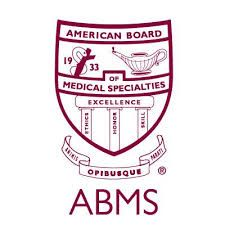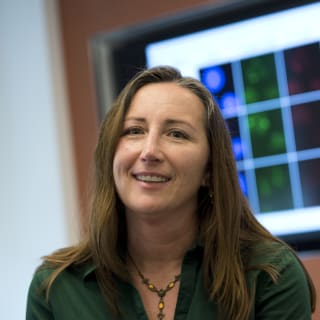Dr. Savage is on Doximity
As a Doximity member you'll join over two million verified healthcare professionals in a private, secure network.
- Gain access to free telehealth tools, such as our “call shielding” and one-way patient texting.
- Connect with colleagues in the same hospital or clinic.
- Read the latest clinical news, personalized to your specialty.
Office
10 Rockville Pike
# National
Bethesda, MD 20892Phone+1 240-276-7241
Summary
- My internationally renowned research program combines clinical, genetic, and epidemiologic studies to advance understanding of cancer etiology and improve the lives of individuals with complex cancer-prone disorders.
As Clinical Director of the Division of Cancer Epidemiology and Genetics (DCEG) at the NCI, I lead numerous strategic initiatives, oversee all clinical activities in the Division, ensure appropriate human subjects research protections, and provided thoughtful stewardship of research funding for all DCEG clinical activities. As Director of the Clinical Genetics Branch, I oversee 9 tenured PIs, 3 tenure-track investigators, and more than 40 clinical, technical, and administrative support personnel.
I apply my expertise in genetics, clinical medicine, and epidemiology to discover the causes of cancer, understand the clinical manifestations of complex cancer-prone disorders, and apply these findings to individuals and populations at risk. Initiated in 2011, my Li-Fraumeni syndrome (LFS) study is an internationally recognized hub for > 900 participants and 14 international collaborative institutions and leads the field in understanding clinical and genetic aspects of LFS. My work in inherited bone marrow failure syndromes (IBMFS) has discovered 9 new causative genes and conducted unprecedented clinical phenotyping leading to changes in patient management. Nested within the IBMFS program, I have discovered 5 novel causes of dyskeratosis congenita/telomere biology disorders (DC/TBDs), defined new phenotypes, quantified cancer risk, and conducted the most comprehensive genotype-phenotype study, to date.
Education & Training
 National Cancer InstitutePost-Doctoral Fellowship, 2000 - 2006
National Cancer InstitutePost-Doctoral Fellowship, 2000 - 2006 Johns Hopkins UniversityFellowship, Pediatric Hematology/Oncology, 2000 - 2003
Johns Hopkins UniversityFellowship, Pediatric Hematology/Oncology, 2000 - 2003 Children's National HospitalResidency, Pediatrics, 1997 - 2000
Children's National HospitalResidency, Pediatrics, 1997 - 2000 University of Vermont College of MedicineClass of 1997
University of Vermont College of MedicineClass of 1997 Worcester Polytechnic InstituteBS, Biochemistry, 1987 - 1991
Worcester Polytechnic InstituteBS, Biochemistry, 1987 - 1991
Certifications & Licensure
 MD State Medical License 2000 - 2025
MD State Medical License 2000 - 2025 American Board of Pediatrics Pediatrics
American Board of Pediatrics Pediatrics American Board of Pediatrics Pediatric Hematology-Oncology
American Board of Pediatrics Pediatric Hematology-Oncology
Clinical Trials
- Clinical and Genetic Studies of Li-Fraumeni Syndrome Start of enrollment: 2012 Jan 17
- Rare Tumors and Cancer Predisposition in Individuals and Families Start of enrollment: 2023 Mar 10
Roles: Contact, Principal Investigator
- Needs Assessment for Individuals and Families Affected by Dyskeratosis Congenita (DC) and Related Telomere Biology Disorders (TBD) Start of enrollment: 2021 Sep 09
Roles: Contact, Principal Investigator
- Join now to see all
Publications & Presentations
PubMed
- Donor telomeres and their magnitude of shortening post-allogeneic haematopoietic cell transplant impact survival for patients with early-stage leukaemia or myelodyspla...Shahinaz M Gadalla, Hormuzd A Katki, Tsung-Po Lai, Paul L Auer, Casey L Dagnall
Ebiomedicine. 2025-03-08 - Genetic regulation of TERT splicing affects cancer risk by altering cellular longevity and replicative potential.Oscar Florez-Vargas, Michelle Ho, Maxwell H Hogshead, Brenen W Papenberg, Chia-Han Lee
Nature Communications. 2025-02-16 - Different phenotypes with different endings-Telomere biology disorders and cancer predisposition with long telomeres.Sharon A Savage, Alison A Bertuch,
British Journal of Haematology. 2025-01-01
Press Mentions
- This Rare Genetic Condition Leads to Cancer After CancerMay 17th, 2021
 Establishing Links Between Germline Mutations and OncogenesisSeptember 27th, 2017
Establishing Links Between Germline Mutations and OncogenesisSeptember 27th, 2017
Grant Support
- Genetic Epidemiology Of Telomere Maintenance And Cancer EtiologyNational Cancer Institute2008
- Genetic Epidemiology Of Telomere MaintenanceDivision Of Cancer Epidemiology And Genetics2006
- Pharmacogenetic StudiesDIVISION OF CANCER EPIDEMIOLOGY AND GENETICSPresent
- Pharmacogenetic StudiesDIVISION OF CANCER EPIDEMIOLOGY AND GENETICSPresent
- Epidemiology and Genetics of Susceptibility to COVID-19 InfectionDIVISION OF CANCER EPIDEMIOLOGY AND GENETICSPresent
- Intervention Trials in Persons at Increased Genetic Risk of CancerDIVISION OF CANCER EPIDEMIOLOGY AND GENETICSPresent
- Clinical Genetic Studies of Familial and Hereditary Cancer SyndromesDIVISION OF CANCER EPIDEMIOLOGY AND GENETICSPresent
- Family StudiesDIVISION OF CANCER EPIDEMIOLOGY AND GENETICSPresent
- Intervention Trials in Persons at Increased Genetic Risk of CancerDIVISION OF CANCER EPIDEMIOLOGY AND GENETICSPresent
- Clinical Genetic Studies of Familial and Hereditary Cancer SyndromesDIVISION OF CANCER EPIDEMIOLOGY AND GENETICSPresent
- Family StudiesDIVISION OF CANCER EPIDEMIOLOGY AND GENETICSPresent
- Family StudiesDIVISION OF CANCER EPIDEMIOLOGY AND GENETICSPresent
- Epidemiology and Genetics of Susceptibility to COVID-19 InfectionDIVISION OF CANCER EPIDEMIOLOGY AND GENETICSPresent
- Epidemiology and Genetics of Susceptibility to COVID-19 InfectionDIVISION OF CANCER EPIDEMIOLOGY AND GENETICSPresent
- Epidemiology and Genetics of Susceptibility to COVID-19 InfectionDIVISION OF CANCER EPIDEMIOLOGY AND GENETICSPresent
- Genetic Epidemiology of Telomere Maintenance and Cancer EtiologyDIVISION OF CANCER EPIDEMIOLOGY AND GENETICSPresent
- Genetic Epidemiology of Telomere Maintenance and Cancer EtiologyDIVISION OF CANCER EPIDEMIOLOGY AND GENETICSPresent
External Links
- Bibliographyhttps://www.ncbi.nlm.nih.gov/myncbi/sharon.savage.1/bibliography/public/
Viewing the full profile is available to verified healthcare professionals only.
Find your profile and take control of your online presence:










